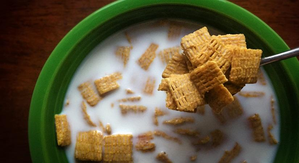New Delhi– Morning rituals and healthy breakfasts together form a tradition we pass down to our kids. But here is the twist: those seemingly virtuous cereals might contain ingredients with damaging effects that you might not be aware of. Could your child’s apparent healthy morning bowl be hiding cancer-causing ingredients?
Read ahead to know more as Nupuur Patil, a nutritionist and fitness expert breaks down cereal Ingredients, which is a common breakfast in many households.
Acrylamide: A Hidden Threat
Acrylamide, a potentially carcinogenic (cancer-causing) compound, is formed during the cooking process of certain foods, especially those high in starch, like cereals. Acrylamide is classified as a Group 2A carcinogen by the International Agency for Research on Cancer (IARC), indicating its potential carcinogenicity to humans. This underscores the importance of understanding how our food is processed and choosing products that minimize exposure to such compounds.
The Sugar Dilemma: A Sweet Conundrum
One of the primary concerns associated with kids’ cereals is the high level of added sugars. Studies suggest a possible link between excessive sugar consumption and an elevated risk of certain cancers. Refined sugars contribute to inflammation and insulin resistance, creating an environment conducive to cancer cell development. Parents are, therefore, urged to be vigilant about sugar content, opting for cereals with minimal added sugars or, better yet, exploring natural sweeteners.
Artificial Colors and Flavors: A Potential Culprit
Artificial colors and flavors, commonly found in children’s cereals, have raised questions about their safety. Some studies hint at a potential connection between certain artificial colors and an increased risk of cancer. Commonly used synthetic food colorants (SFCs), such as Red 40 and Yellow 5, are under scrutiny. Choosing cereals with natural ingredients and fewer artificial additives can be a step towards reducing potential health risks.
Empowering Parents: Making Informed Choices
While the link between kids’ cereals and cancer is not conclusively proven, parents can empower themselves by making informed choices. Opting for cereals with minimal added sugars, natural ingredients, and no artificial additives, as well as being mindful of GMOs and pesticides, can contribute to a healthier diet for children.
As parents, our choices play a pivotal role in shaping our children’s health. By staying informed and making conscious decisions about the cereals we provide, we can contribute to a healthier future for our kids. Prioritizing whole, nutrient-rich foods and minimizing exposure to potential carcinogens is a significant step towards fostering well-being and safeguarding our children’s health. (IANS)













